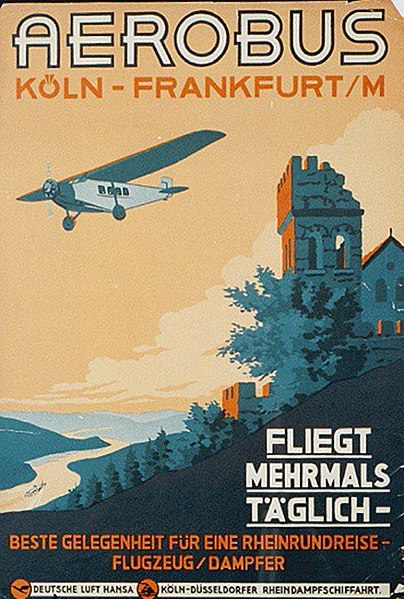
Each 7 December is celebrated as United Nations (UN) International Civil Aviation Day.
The Thammasat University Library collection includes many books on different aspects of the subject of civil aviation.
As the UN website explains,
The purpose of International Civil Aviation Day is to help generate and reinforce worldwide awareness of the importance of international civil aviation to the social and economic development of States, and of the unique role of the International Civil Aviation Organization (ICAO) in helping States to cooperate and realize a truly global rapid transit network at the service of all mankind.
As the UN and world nations have now adopted Agenda 2030, and embarked on a new era in global sustainable development, the importance of aviation as an engine of global connectivity has never been more relevant to the Chicago Convention’s objectives to look to international flight as a fundamental enabler of global peace and prosperity.
Every five years, coinciding with ICAO anniversaries, the ICAO Council establishes a special anniversary theme for International Civil Aviation Day. Between these anniversary years, Council representatives select a single theme for the full four-year intervening period.
75 Years of Connecting the World
Seventy-five years after ICAO’s foundation, the International Civil Aviation network carries over four billion passengers annually.
The global Air Transport sector supports 65.5 million jobs and USD 2.7 trillion in global economic activity, with over 10 million women and men working within the industry to ensure 120,000 flights and 12 million passengers a day are carried safely to their destinations. The wider supply chain, flow-on impacts and jobs in tourism made possible by air transport show that at least 65.5 million jobs and 3.6 per cent of global economic activity are supported by the aviation industry according to research by the Air Transport Action Group (ATAG)…
Future Aviation Innovation
A New Generation and the Future of Flight
Innovation is the way forward. This is true for all areas of human endeavour, including aviation. And just as in the past, aviation will be a key innovator and early adopter when it comes to the technologies of the future. ICAO’s main role in supporting aviation innovation is through a responsive and dynamic regulatory assessment approach that encourages new developments and accelerates their harmonization so that the sector can take advantage of the incredible new performance and capabilities these developments promise.
Frontier Technologies in Aviation
Artificial Intelligence, blockchain, UAS/Drones — these frontier technologies have been recognized by the global community as having a pivotal role in the achievement of the Sustainable Development Goals. Artificial Intelligence becoming more commonplace in increasing productivity across all sectors of industry. Blockchain can provide a reliable method of storing data and performing transactions in order to ensure that data cannot be falsified. Unmanned Aircraft operations will involve stakeholders familiar with aviation as well as many who are not.

The International Civil Aviation Organization (ICAO) is a specialized agency of the UN. It changes the principles and techniques of international air navigation and fosters the planning and development of international air transport to ensure safe and orderly growth. Its headquarters are located in the Quartier International of Montreal, Quebec, Canada.
The ICAO Council adopts standards and recommended practices concerning air navigation, its infrastructure, flight inspection, prevention of unlawful interference, and facilitation of border-crossing procedures for international civil aviation. ICAO defines the protocols for air accident investigation that are followed by transport safety authorities in countries signatory to the Chicago Convention on International Civil Aviation.
The Air Navigation Commission (ANC) is the technical body within ICAO. The commission is composed of 19 commissioners, nominated by the ICAO’s contracting states and appointed by the ICAO Council. Commissioners serve as independent experts, who although nominated by their states, do not serve as state or political representatives. International Standards And Recommended Practices are developed under the direction of the ANC through the formal process of ICAO Panels. Once approved by the commission, standards are sent to the council, the political body of ICAO, for consultation and coordination with the member states before final adoption.
ICAO is distinct from other international air transport organizations, particularly because it alone is vested with international authority (among signatory states): other organizations include the International Air Transport Association (IATA), a trade association representing airlines; the Civil Air Navigation Services Organization (CANSO), an organization for Air navigation service providers (ANSPs); and the Airports Council International, a trade association of airport authorities.

The Civil Aviation Authority of Thailand
As TU students know, The Civil Aviation Authority of Thailand (CAAT) located at Lak Si Plaza, Khamphaeng Phet 6 Road, Talat Bang Khen, Lak Si, Bangkok, has the following Vision and Mission for its Strategic Plan (2019-2022):
Vision
“Standard toward Sustainability”
Mission
- To promote and develop efficient and sustainable civil aviation activities
- To maintain and improve equitable and international standard regulatory system
- To continuously monitor and implement standards and recommended practices of international organizations
- To continuously develop the organization, its personnel and the supporting system
Among its many Duties and Responsibilities are
1) To study, analyze and develop civil aviation activities in the aspects of safety, environmental protection, air transport facilitation, air transport economy as well as the civil aviation infrastructure system of the country;
2) To give a recommendation on a policy to the Civil Aviation Board concerning civil aviation and air transport;
3) To give a recommendation to the Minister on the issuance of ministerial regulations under the law on air navigation;
4) To perform the duty as the secretariat for the Civil Aviation Board under the law on air navigation, and perform other works as assigned by the Civil Aviation Board;
5) To take action to prepare the National Civil Aviation facilitation program, security program, and safety program including the master plan for commercial airport establishment in the country to be proposed to the Civil Aviation Board for approval, as well as to regulate and control implementation according to those programs;
6) To take action to systemize civil aviation, and stipulate rules, procedures, and conditions concerning airspace utilization to optimize safety and efficiency;
7) To inspect, monitor, control and encourage those involved in aviation industry and civil aviation activities to comply with laws, rules, procedures, and International Standards;
8) To regulate aerodrome activities and licensed aerodrome established under the law on air navigation or other laws to ensure safety and meet International Standard;
9) To give cooperation with, and support to, the Civil Aviation Board and government agencies in coordination or negotiation with international organizations or foreign countries related to air traffic rights or entry into any agreement related to civil aviation which is subject to the powers and duties of other government agencies;
10) To cooperate and coordinate with relevant organizations or agencies, both domestic and international, in the matter of civil aviation in accordance with Thailand’s obligations under international conventions or agreements to which Thailand is a party;
11) To promote and support research and development for civil aviation activities;
12) To certify training courses and training organizations for personnel under the law on air navigation and stipulate other required qualifications and knowledge of aviation personnel;
13) To stipulate standards for officers’ performance under the law on air navigation;
14) To establish the aircraft registry and registry for personnel and other persons relating to civil aviation;
15) To prepare and distribute knowledge and news concerning civil aviation;
16) To perform any other action that is necessary or sequential to achieve the Authority’s objectives, that is prescribed by law as the powers and duties of the Authority, or that is assigned by the Minister or the Cabinet.
As the media has reported, the CAAT has recently played an essential role in Coronavirus 2019 (COVID-19) prevention and control.

(All images courtesy of Wikimedia Commons)
